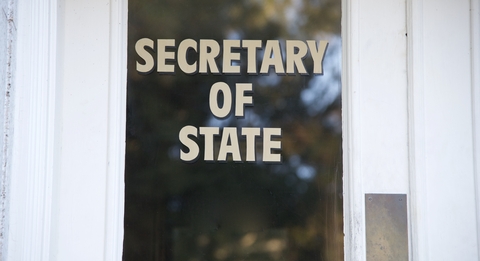Top post: Five things you can’t find online and what to do about it
This post was originally published in March 2021
As someone who specializes in gathering and analyzing online information, I’ll be the first to admit that you can’t find everything on the web. When you’re digging deep for hard-to-find answers to client questions, relying on just online research may leave gaps, which – in our business – can be costly. That’s why it’s important for researchers and investigators to be aware of what’s included in their sources and what’s missing.
What are some things you can’t find online?
Human intelligence (HUMINT) – This involves going directly to the people who may have the answers you need. As competitive-intelligence expert Ben Gilad puts it, “Only human sources can provide commentary, opinion, feelings, intuition, emotions, and commitment.” Including HUMINT adds color and depth to our reports, and helps us fill the gaps.
What’s waiting to be posted – It takes people, time, and money to add a public record or article to a website after it’s been created, and sometimes there’s not much of that to go around. So, the property deed record you’d like to see? It may be sitting in someone’s in basket, or the agency that creates those records has made the decision to cut back on availability.
Redacted records – For people in certain professions (e.g., law enforcement, court system, etc.), exposing home addresses or other personal information through online records can be be risky. Many jurisdictions have responded by redacting records.The entire record might be missing or just a part of it, and it can be a problem for those of us with legitimate reasons for needing that information.
Non-public, personal information – When it comes to Social Security Numbers, driver’s license information, banking records, and other data protected by privacy laws, you definitely won’t find these on the open web. This is one of the advantages of working with a professional investigator, since, with a legitimate use, certain information may be available through specialized (and restricted) sources.
The story behind the story – With anything you find online, there’s usually a backstory. For a recent due diligence investigation I verified our subject’s degree through the usual channels. After speaking with their university graduate supervisor, though, I learned that he was considered the “best and brightest” in the professor’s long career of working with PhD-level students. That was useful info, since my client was about to invest a lot of money in this individual’s new venture.
What can you do about missing information?
Don’t assume – Just because you can’t find it on the web, the answers may still exist somewhere. In someone’s brain, to-do pile, or filing cabinet. Remember that online research is a first pass. The next step is to pick up the phone. You can cover a lot of ground by making some calls, and I’ve discovered that people are more than happy to point me in the right direction.
Explore alternatives – The answers may not come from the questions you or your client thought to ask. Is there another way to get to the same place? For example, instead of asking for banking records, which, with few exceptions, you won’t be able to (legally) obtain, try to get a sense of someone’s finances through open sources such as public records and social media. No clues from your subject’s social media? Try their spouse’s profile.
Hire a professional investigator – A PI license is essential for access to certain databases, especially those with personal, non-public information. PIs are also trained in identifying the best sources for every situation, eliciting information from others, and knowing what’s legal and what’s not (buying banking records online is not).
Online searching is a great place to start. For in-depth coverage, though, take some time to step away from the computer and find what’s missing.



